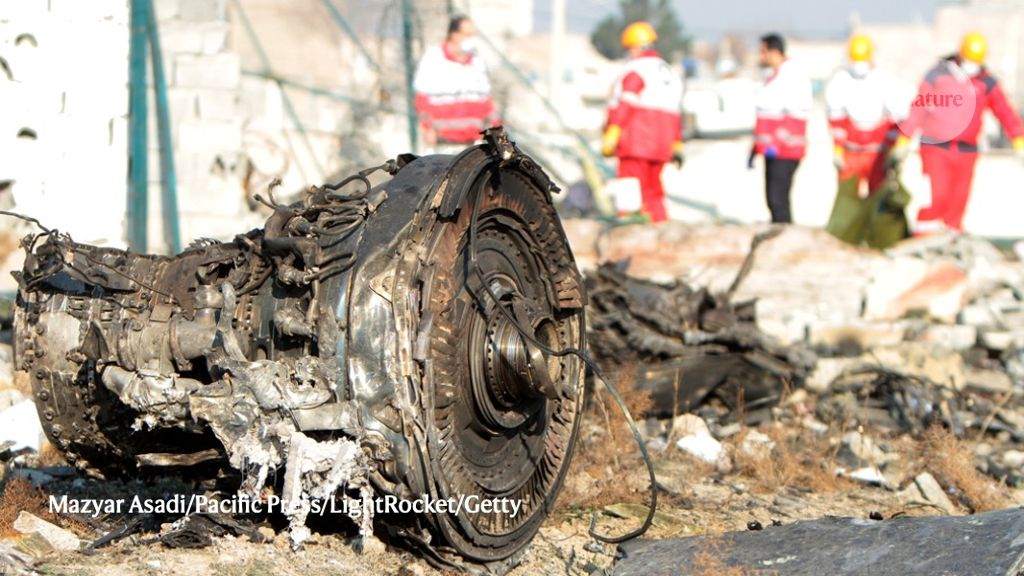Canadian universities are mourning more than a dozen faculty and students who died when Ukraine International Airlines Flight PS752 flight crashed in Iran on 8 January.
One-hundred seventy-six people were killed when the Boeing 737-800 crashed shortly after takeoff from Tehran. At least 63 victims were Canadian, and according to the country’s prime minister, Justin Trudeau, 138 people on the flight were connecting to Canada.
“What happened yesterday was a tragedy, a tragedy that shocked not only Canada but the world,” Trudeau said at a news conference on 9 January, calling for a “thorough investigation” into the causes of the crash. “We have intelligence from multiple sources, including our allies and our own intelligence. The evidence indicates that the plane was shot down by an Iranian surface-to-air missile. This may well have been unintentional,” he said.
The US government also believes the plane was felled by an Iranian missile strike, according to multiple media reports.
The Iranian government denied such reports. Government spokesman Ali Rabie told US broadcaster National Public Radio that flight data recordings would eventually clarify the cause of the crash. “Everything will become clear that it was just an accident.”
Across Canada, universities lowered flags to half staff and planned gatherings to honour the dead. “I want to express my heartfelt grief. Words simply cannot express the loss I know we all are feeling,” David Turpin, president and vice-chancellor at the University of Alberta in Edmonton, wrote on 8 January. Turpin told Reuters that at least 10 university members had died in the crash. About 50 people attended a vigil at the Alberta Legislature Building on 8 January, lighting candles and placing photos on the steps, to remember friends and colleagues, CBC reported.
According to media reports, University of Alberta faculty members Pedram Mousavi and Mojgan Daneshmand — both engineers — and their two young daughters were among those who died. Also on the passenger list were Arash Pourzarabi and Pouneh Gorji, both graduate students in computer science, who were returning to Canada after their wedding in Iran. University flags would be lowered to half staff to remember the victims, president Turpin said.
“So so devastated 😞 for losing smart and kind friends Mojgan Daneshmand and Pedram Mousavi of U Alberta and their beautiful kids in yesterday’s airplane crash in Iran! Heartbroken!” Peyman Servati, an electrical engineering professor at the University of British Columbia in Vancouver, wrote on Twitter.
‘Sad days’
At least five University of Windsor community members were listed as passengers, the Ontario university said in a statement, adding that a memorial service was being planned for the coming days. On 8 January, Iranian students gathered in the engineering school to remember the friends they lost, bringing flowers and dates, the Windsor Star newspaper reported.
Flags at the University of Guelph were lowered to mourn two university graduate students who died in the crash: Ghanimat Azhdari of the Department of Geography, Environment and Geomatics, and Milad Ghasemi Ariani, from the Department of Marketing and Consumer Studies. The university said it is planning a vigil for the students on 10 January.
“Sad days at Lang as we learn of the lose of Milad Ghasemi Ariani in the Ukraine plane crash in Iran. Milad had just started his PhD with us in the fall, so much hope, gone. My heart goes out to family and friends,” Statia Elliot, a marketing professor at the University of Guelph, wrote on Twitter.
“We lost our dear friend and colleague,” Faisal Moola, an ecologist at the University of Guelph, said on Facebook. Moola said that it had been a “awful 48 hours for our students and faculty” at the department of geography, where Azhdari was a member of his lab.
“The one thing that brings me a little comfort is the knowledge that Ghanimat was such a proud member of the Qashqai Indigenous tribe in Iran and spoke with such love for her people and her ancestral territories in our lab meetings and with her classmates,” Moola wrote. “She was a powerful and passionate young leader in defence of Indigenous Peoples across the planet and her life’s work continues.”


